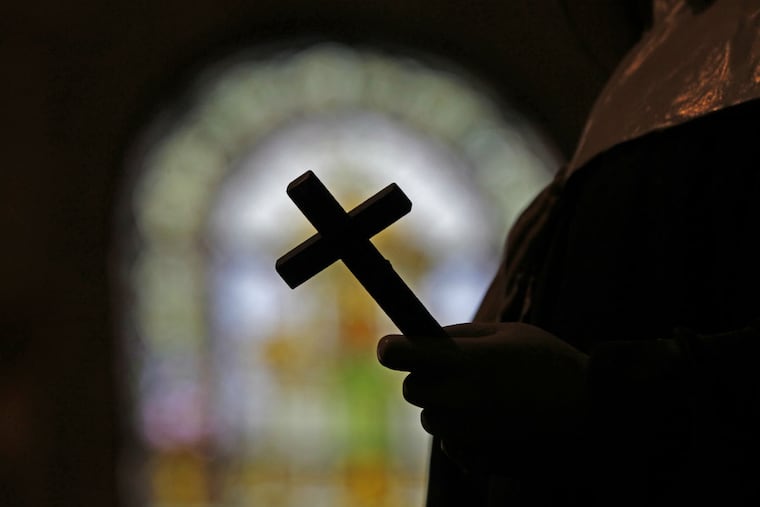As New Jersey acts, Pennsylvania continues to fail our state’s victims of priests’ sexual abuse | Mike Newall
New Jersey’s day of reckoning is a long way off for victims and advocates just over the line in Pennsylvania.

You couldn’t call it a happy day in New Jersey. But it was a long-awaited one.
On Monday, victims of past sexual abuse by priests began to file civil lawsuits against the Catholic Church — suits long barred by the statute of limitations.
Fifty lawsuits, the first wave of what are expected to be hundreds during a two-year window in which any victims of sexual abuse can file civil claims against their abusers, regardless of when the abuse happened. The window is one advocates fought hard to pry open. And one the church and its insurance agencies have long tried to hold shut.
A chance at some measure of justice, finally.
For many who told their stories on Monday, the window isn’t about money. It’s about finally getting some answers.
New Jersey’s window makes the state home to one of the most progressive victim-rights laws in the country, experts say. And Pennsylvania? Well, we’re still failing our victims.
New Jersey’s day of reckoning is a long way off for us. Which is even more egregious considering that our state has weathered two devastating grand jury reports on the extent of child abuse in the church — the more recent so horrific it managed to shock even after nearly two decades of shocking revelations.
Our sins inspired New Jersey to act.
When it comes to the victims of past abuse, the best you can say for our fine legislators is that they kind of, sort of, somewhat, promised to take a modicum of action — after nearly a decade of debate and some good old-fashioned Pennsylvania Republican stonewalling. (Easily shamed, they are not.)
To the legislature’s credit, the state’s statute of limitations will now no longer apply to criminal cases of childhood sex abuse. And victims can sue up until their 55th birthdays.
But when it comes to a window for lawsuits by past victims, lawmakers have compromised, deciding to definitely — maybe, if everything goes exactly according to plan — open that window years from now. Instead of a law, they’ve decided to try to pass a constitutional amendment.
Here’s where the delays begin. Amendments take much longer than laws to make it out of the legislature. They have to be approved, with the same exact language, by two consecutive two-year sessions of the state legislature. So that’s a few years down the drain.
If the amendment passes, it goes to the voters. And then there are the inevitable appeals.
That sound you hear is the can being kicked way, way down the road.
Civil suits bring individual justice. And in discovery, they also expose rot at the heart of the hierarchy.
That’s critical in Pennsylvania — because the scope of the crisis in Pennsylvania’s dioceses is so big that it can’t be contained in criminal investigations, no matter how detailed.
Think of it this way, said Marci Hamilton, a lawyer and longtime victim advocate: The latest grand jury report was more than 800 pages long, and it encompassed the cases of more than 1,000 victims and 300 priests. It couldn’t get into the nitty-gritty of just how each perpetrator was empowered by the system, she said.
Prying the window open gets all the bad air out — and the facts.
Rep. Mark Rozzi, a Democrat from Berks County and a survivor of sexual abuse by a priest at his childhood parish in Reading, said amending the constitution to open the window was his last avenue in a Republican-controlled legislature.
Rozzi is a longtime victim advocate who’s now considered a traitor by some in the victim advocacy community for helping broker the compromise over the constitutional amendment.
“As much as I wanted a statutory window, with this political makeup here, it just would never happen,” he said, noting that lawmakers had tried to push a statute through the Republican-controlled state Senate twice.
So here we are with our half-measures. Our unopened windows. Our promises for change that feel a little empty when you look at what’s happening across the river.
It was a day that could never have been happy, but one that’s more cause for celebration than Pennsylvania’s long road ahead.